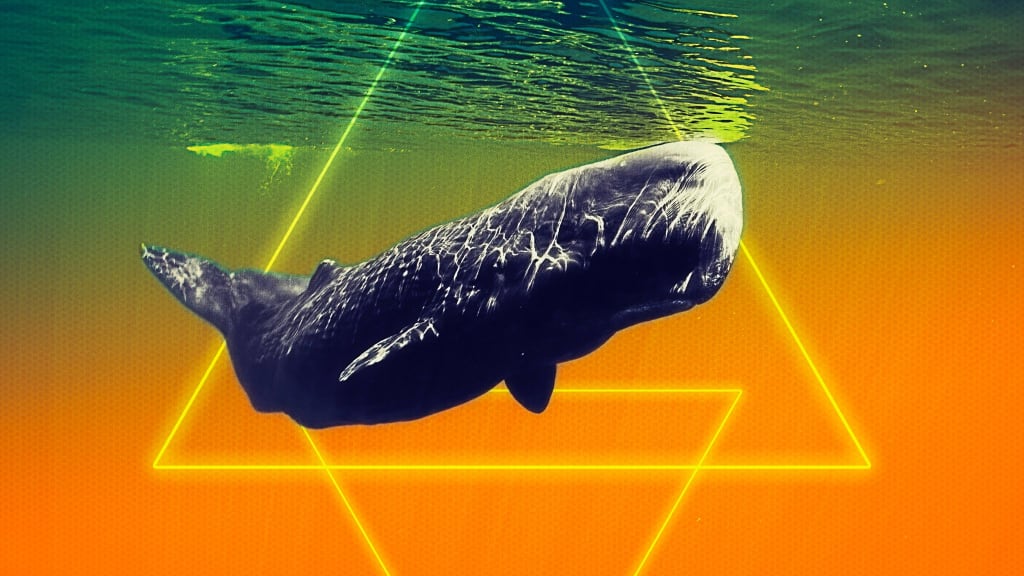What if you were swallowed by a whale?
An unbelievable journey: The story of survival inside a whale

Out on the vast expanse of the ocean, there are moments when something immense stirs beneath the surface. Have you ever caught sight of it? Encounters with whales, creatures of staggering size and power, occur more frequently than many realize. Videos capture heart-stopping close calls where people narrowly evade becoming an inadvertent meal for these oceanic behemoths. But what if fate had turned differently? Could a human survive being swallowed by a whale? Has such a harrowing event ever taken place?
Whales, particularly the awe-inspiring blue whales, are creatures that defy human comprehension with their sheer enormity. As the largest animals on Earth, a blue whale's tongue alone can weigh as much as an elephant, and its mouth is spacious enough to accommodate anywhere between 400 to 500 people. However, despite their size, the anatomy of these gentle giants makes it highly improbable for them to accidentally ingest a human whole. It's their smaller relatives, like the sperm whales, that pose a more realistic concern.
One of the most storied incidents dates back to 1891, when reports emerged of a man allegedly swallowed by a sperm whale. The account of James Bartley remains a fascinating tale of survival against all odds. It is said that Bartley found himself inside the whale after it attacked his ship, surviving an entire night before being rescued. When the crew eventually caught and dissected the whale, they were astounded to find Bartley alive but unconscious. His skin was reportedly bleached white, and he suffered from blindness attributed to the whale's stomach acids. Over time, skepticism emerged regarding the accuracy of Bartley's tale, questioning whether such an ordeal could result in the reported effects solely from exposure to stomach acids.
To understand the reality of being swallowed by a whale, one must consider the incredible hazards involved. If miraculously spared by the whale's formidable teeth—each tooth can measure up to 20 centimeters long, akin to the length of a chef's knife—the journey into the whale's digestive system would be a descent into darkness and peril. As you pass through the whale's throat, where oxygen is scarce and methane gas pervades, the corrosive effects of hydrochloric acid would begin to take their toll on your skin and respiratory system.
But the nightmare doesn't end there. Upon entering the whale's stomach, you would be immersed in a world of acidic digestive juices and possibly illuminated by the remnants of bioluminescent squid, a favored meal of sperm whales. Over time, as you progress through the whale's four stomach chambers, your body would undergo progressive dissolution. The acidic environment would break down tissues, organs, and bones until you are reduced to skeletal remnants, eventually expelled through the whale's anus.
James Bartley's tale, however captivating, underscores the near-impossibility of surviving such an encounter with a whale. These majestic creatures, despite their size and occasional proximity to humans, pose no threat to us. If whales could speak, they would likely emphasize their gentle nature and the mutual respect they have shown to humans throughout history. Yet, tales like Bartley's continue to captivate our imagination, reminding us of the profound mysteries and perils that lurk beneath the ocean's surface.
In contemplating the hypothetical scenario of surviving being swallowed by a whale, modern science and marine biology shed light on the complexities and dangers involved. The immense physical constraints, coupled with the hostile environment of a whale's digestive tract, make it exceedingly improbable for a human to endure such an ordeal. The teeth alone, designed to grip and tear apart large prey like squid or fish, would pose a formidable barrier to entry into a whale's mouth, let alone deeper into its throat and stomach.
Research into similar incidents involving marine mammals confirms the overwhelming odds against survival. Instances of marine biologists encountering deceased animals, with stomach contents partially digested or decomposed, underscore the ferocity and efficiency of a whale's digestive processes. These observations highlight the stark reality that, while whales may evoke wonder and fascination in their size and behavior, they are fundamentally predators adapted to consume prey vastly different from humans.
Thus, while tales like that of James Bartley may capture our imagination and intrigue, they remain firmly in the realm of folklore and myth rather than scientific possibility. Whales, as magnificent as they are, exist within a complex ecosystem where humans are not considered prey. Our interactions with these creatures serve as a testament to the harmony and respect we strive to maintain in our shared marine environments.
As we continue to explore and study marine life, each encounter with whales offers new insights into their biology and behavior. From the haunting depths they inhabit to their majestic breaching at the ocean's surface, whales inspire a deep reverence and curiosity. They remind us of our place in the natural world and the need to protect these magnificent creatures and their habitats for future generations to marvel at and learn from.
In conclusion, while the idea of being swallowed by a whale sparks intrigue and speculation, the reality is far more complex and perilous. Whales, despite their immense size and occasional proximity to humans, are not predators of our kind. They represent a unique marvel of evolution and adaptation in the vast expanses of the ocean, and their encounters with humans serve as poignant reminders of the wonders and mysteries that still await exploration beneath the waves.
About the Creator
Petra
Hello! I’m a young woman with an insatiable curiosity. I love reading, especially news articles, historical accounts, and scientific discoveries. Whether it’s unraveling the mysteries of the past or diving into the wonders of the cosmos.
Enjoyed the story? Support the Creator.
Subscribe for free to receive all their stories in your feed.






Comments
There are no comments for this story
Be the first to respond and start the conversation.